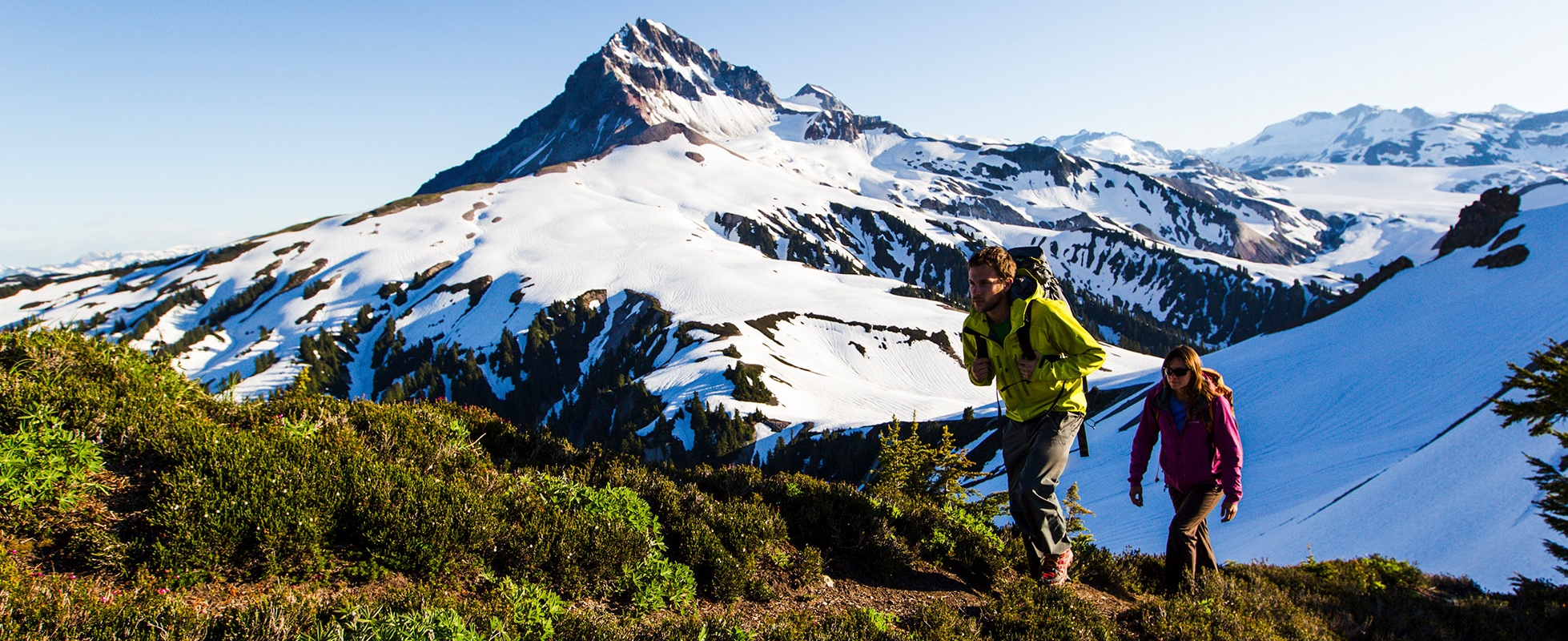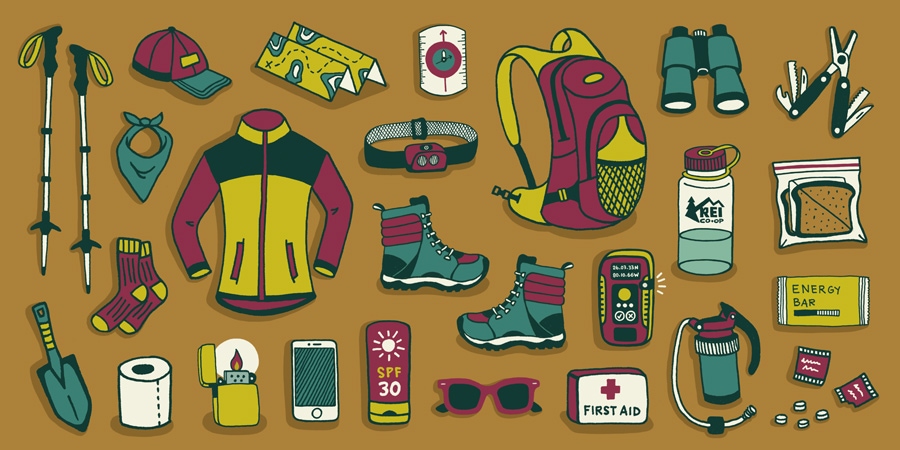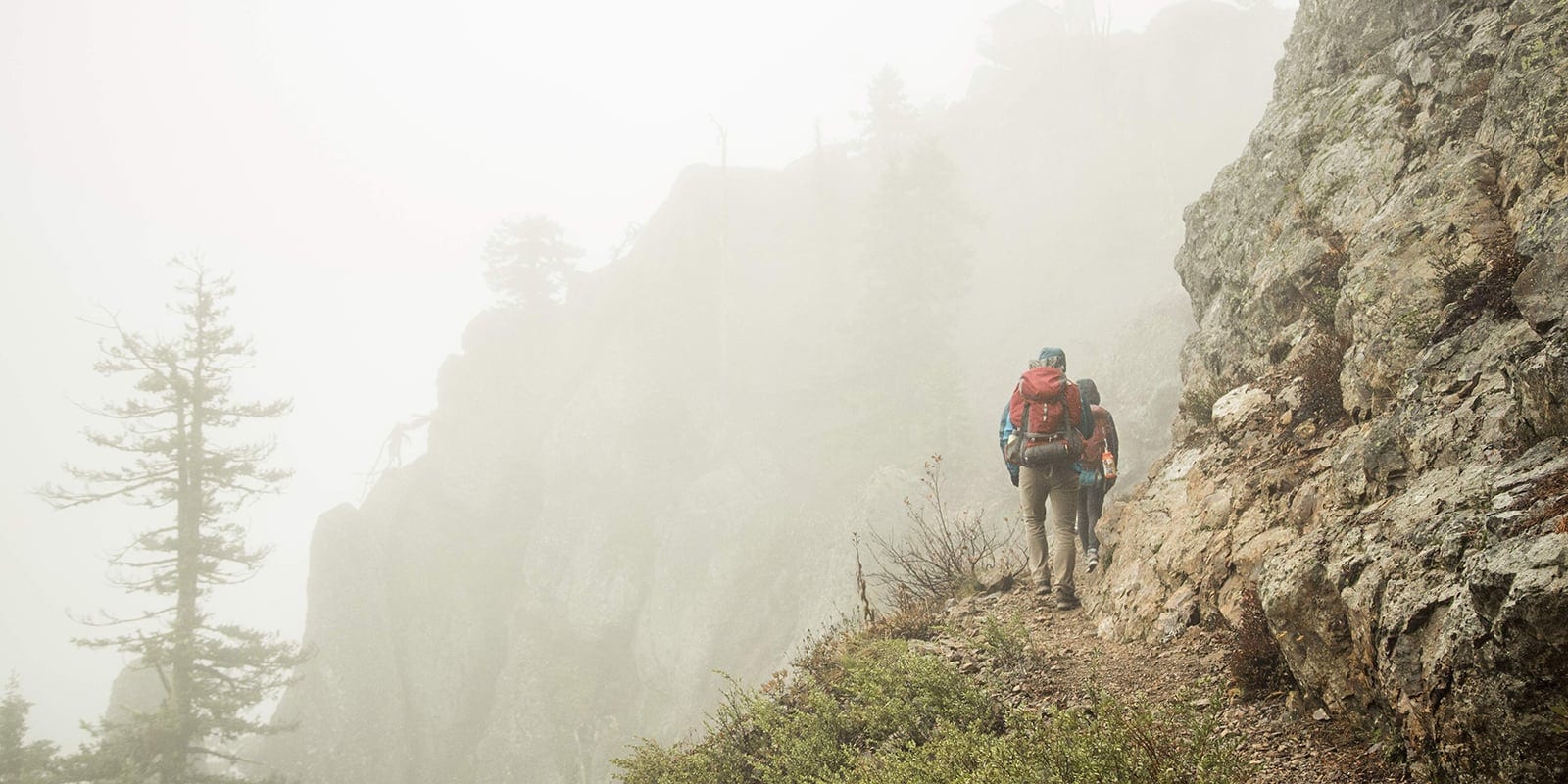Hi everyone! I'm Chanagh, an international Sauder student from Dubai, and have just moved to Vancouver for my bachelor's degree. Having lived in Muscat in Oman, Delhi, and Bangalore in India, and Dubai in the United Arab Emirates, Vancouver weather is unlike anything I've ever experienced.
In absolute stark contrast to the hot and humid desert like the weather in Oman and the UAE, Vancouver's pleasant summers and cool and windy winters are a welcome change.
We are fortunate to have over 6000 hiking/trekking trails and other fantastic regional reserves in British Columbia, making trekking an incredibly appealing activity in this beautiful region. However, there are a few safety precautions you must take before embarking on your thrilling journey, and I will highlight a few weather-related concerns to be aware of as you plan your trail. Recently with all the wonderful trails to explore in Vancouver, I've developed an interest in trekking and would like to discuss how the experience with weather in mind differs from my home city Dubai and here in the picturesque blessed city of Vancouver


(trekking in Dubai, left image and in BC, right image)
How weather can affect a good trekking trip:
If the day's expected temperature is in the mid to high 30s, postpone your trek or adjust your plans to begin and end earlier. If you're still hiking in the heat, make sure you have lots of drink and sun protection. While in Dubai, facing heat even in the winters my trekking club did have a few items to the checklist to make sure we ended up having a pleasant experience overall.
Daily Temperature/Seasonal Temperature
Although trekking is not an apt all year sport/outdoor activity, with proper precautions and the necessary gear one should be good to survive and enjoy a trek in the weather for both Vancouver and even Dubai. The range of possible climatic factors is practically limitless. A sweltering summer day can be equally as dangerous as a very cold winter day. When planning a hike, choose a day with no extreme temperatures on the horizon on either end of the spectrum. However, there are occasions when things like these are beyond your control. As a result, the best way to prepare for any hike is to think about all of the probable weather situations.
I haven't had much experience trekking in the winters here in Vancouver, but having had a recent trip to whistler and seeking out information online and from local friends here, BC tends to have extremely cold temperatures especially prevalent at higher elevations, which will often come to realize once you're halfway through your trek. With such heavy rainfall and cool breezes, hypothermia is a common concern for trekkers in these conditions. When your body is exposed to cold temperatures for an extended period of time, it begins to lose heat faster than it produces. As your body's organs become unable to work properly, this becomes harmful. A relatively good precautionary measure would be to carry a few items:
-A hot drink/flask with tea/coffee
-Spare gas and a lighter
-Extra water-resistant clothing with a few spare layers to change into
-A basic medical kit in case of minor injuries and cuts.
Winters in Dubai however is considered a peak season to trek in, with families(who don't enjoy trekking or simply can't) even driving up a route to camp with trekkers, creating a beautiful and social atmosphere. Weather conditions aren't severe most of the time and light layers with the above-mentioned essentials are a good idea to carry along, but quite necessary.

Summers are in stark contrast in terms of weather conditions for Dubai and Vancouver. Temperatures in the high 35s are common in the summer months in British Columbia. The likelihood of heatstroke(extremely common in the UAE) is the most common danger this poses to hikers. When your body is unable to control its temperature, it continues to climb and you are unable to bring it down. To avoid this, bring the following items with you on these hotter days:
-An umbrella/cap/sunscreen to protect you from harmful UV rays
-Moisture wick clothing, I personally prefer the Dri-fit line offered at many sports retailers
-Sugary food and beverages with tons of water to prevent dehydration from excessive perspiration.
Thunderstorms/windstorms
Windstorms in the UAE and Thunderstorms here in BC have prevalent concerns to trekkers in peak seasons, especially in the winter. During the winter, heavy snow is common at high altitudes in BC. These take the form of avalanches, which are incredibly powerful and pose a danger to hikers. Avalanches can develop naturally or as a result of human activity. However, it is critical to carefully study your path in order to prevent any of these dangers.
Here is a good link to skim through before your trek in the winter here in BC
https://www.outdoorvancouver.ca/resources/back-country-avalanche/
 (winter storm in BC)
(winter storm in BC)
 (sand&windstorm in the UAE)
(sand&windstorm in the UAE)
Winds and Storms can be just as dangerous for hikers during the summer months. Excessive rainfall, thunder, lightning, wind gusts, are all possible outcomes of summer storms.
All of these situations are difficult for hikers and even dangerous if they are not properly prepared. When trekking during a storm, it's critical to get to the lower ground as soon as possible. Once on the lower ground, it's best to stay away from vast open spaces and single huge trees for shelter.
Here is a good link to skim through before your summer trek in BC
https://www.vancouvertrails.com/safety/
Due to extreme temperatures in the summer in the UAE, the ministry has banned trekking at a majority of popular trails, as temperatures often past 50 degrees Celcius.
High Fog/Smog
Be it any corner of the world sight and visibility are essential aspects to consider when trekking. Your trek will be much more difficult and dangerous if the visibility is poor. Poor visibility increases the risk of becoming lost and going off the path, as well as making it more difficult for a relief team to identify you if something goes awry. It also increases the risk of going into serious trouble. Mist, heavy downpours, and winter storms are all examples of poor visibility.

Concluding, I find it best to do a last-minute check of essentials to ensure that irrespective of moderate weather changes in both Dubai and Vancouver, these items range from:
-Extra layers of clothing,spare weather-resistant items, and first aid
-Last-minute weather and food & beverage check
-Informing a close friend/family member of where I will be trekking and when to expect me back, with possible live location sharing
-And the most importantly good company and an even better playlist !

External Resources to skim through
A good list of beautiful trails here in Vancouver:
https://nomsmagazine.com/eat/best-hikes-in-vancouver/
An excellent weather resource to plan your treks in detail
https://weather.gc.ca/city/pages/bc-74_metric_e.html
A good last-minute list to confirm if your essentials are well stocked with you
https://www.cleverhiker.com/blog/ten-things-you-should-bring-on-every-day-hike
 icons at the top right corner of the subsection.
icons at the top right corner of the subsection.